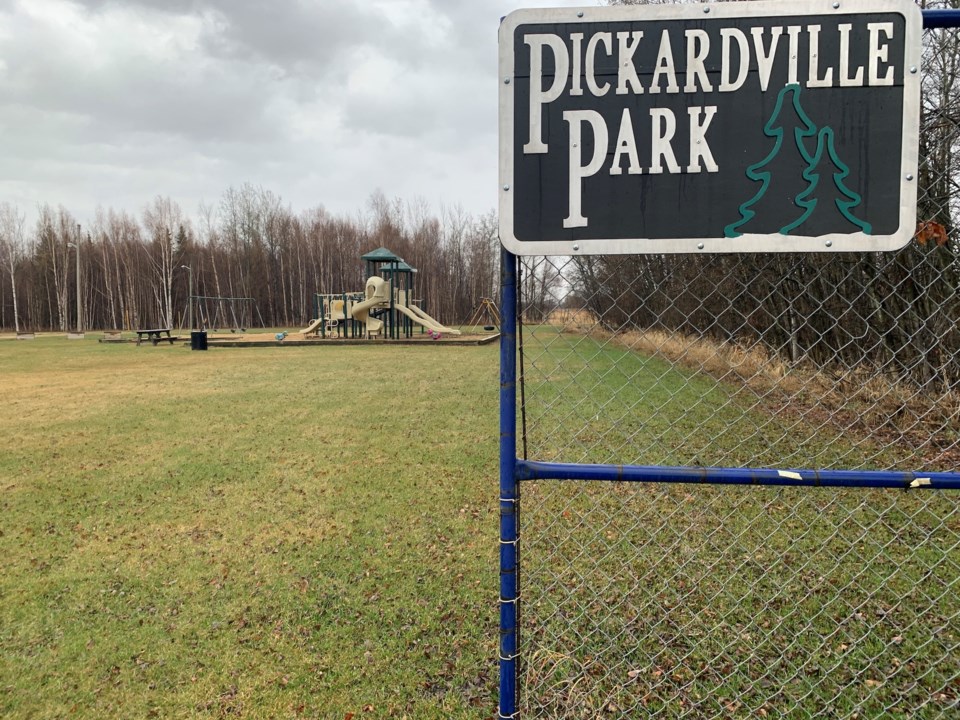WESTLOCK – Westlock County politicians and administration are hoping to pad the municipality’s bottom line via a new sponsorship and advertising policy, with the CAO calling it an unexplored “opportunity.”
At their Oct. 25 meeting, councillors voted 7-0 to approve the 10-page policy a week after seeing it at the Oct. 18 governance and priorities committee (GPC) meeting where they voted 7-0 to accept it as information. Now passed, the document will allow administration to “seek corporate sponsorship for dedicated facilities, parks and potentially programs which will reduce the impact on taxpayers over time.” As per the policy, any money generated by the program will end up in the county’s general revenue account unless “specified in the sponsorship agreement that proceeds received are to be used for a specific purpose.”
“I think everyone around the table recognizes that it is an opportunity that maybe hasn’t really been explored at the county and now it gives us the opportunity to see what kind of extra revenue we can generate,” said CAO Tony Kulbisky in an Oct. 26 follow-up interview.
Although Kulbisky isn’t promising a windfall for the county, he said it’s worth a try as in his previous 13-year posting as CAO of Town of Devon, a similar policy generated $1.2 million for the municipality over a 10-year span. Although specific sponsorship opportunities weren’t discussed during the meeting, possibilities could include naming rights to the Tawatinaw Ski Hill or smaller venues like county-owned parks. Kulbisky reiterated to council that he’ll bring a draft sponsorship agreement that’s been vetted by legal counsel to an upcoming meeting and will work “to create a list of potential corporate sponsors who could be considered going forward.”
“I don’t want to go out and think we can get the same level of funding that I did at my previous municipality, but if we can get close to that, it’s going to have a positive impact on our budgets for sure,” he added.
Councillors expressed enthusiasm for the policy, with Coun. Sherri Provencal unabashedly stating, “I’m very happy with this and I would definitely move to approve this.” In a follow-up interview, reeve Christine Wiese said they look forward to Kulbisky identifying some sponsorship targets and bringing them to the table.
“I think this council is very much wanting to ease the burden on ratepayers’ pockets and we want to try and come up with some new ideas and strategies,” said Wiese Oct. 26. “And really, anything we get is better than what we have right now which is nothing.”
Policy deep dive
As per the policy, available sponsorship and advertising opportunities will be promoted annually, or as a contract term expires, using open processes including competitive bidding.
Sponsorship sales will be the responsibility of the CAO, or designate, who will evaluate an offer from a sponsor using the “Fair Market Value” estimate; how complete/open the process for that specific sponsorship opportunity has been; and the intangible benefits to the county not contemplated by the “Fair Market Value.”
Naming rights will only be for a specified term, and never for perpetuity, and sponsorship recognition “must not detract from the physical attributes, character, integrity, or safety of county-initiated events, or county-owned facilities and respect the use of the county brand.”
The policy also notes that before a property is renamed, the cost and impact of changing existing signage and marketing materials, rebuilding community recognition, updating records and the county’s corporate values and public image “must be considered.”
Sponsorship rights are non-transferable, without the written consent of the county, and may be automatically cancelled by a bankruptcy receivership or illegal activity of the sponsor or any activity “deemed unethical by the county.”
The policy also covers the sale of advertising on things like the county website and its electronic sign. Advertising must not condone any form of personal discrimination, including discrimination on prohibited grounds pursuant to the Canadian Human Rights Act and the Province of Alberta’s Human Rights Code. And although advertising of a political or religious nature will be allowed, it must meet the requirements of the Canadian Code of Advertising Standards and “all political advertising will indicate that the advertisement is paid for by a party or candidate so as to avoid giving the impression that the county is supporting a given party or candidate.” Advertisements of alcoholic products may also be accepted so long as it’s permitted by federal, provincial, or municipal laws, although ultimately, the county “may refuse or order removal of any advertising material at any time in its absolute discretion.”



